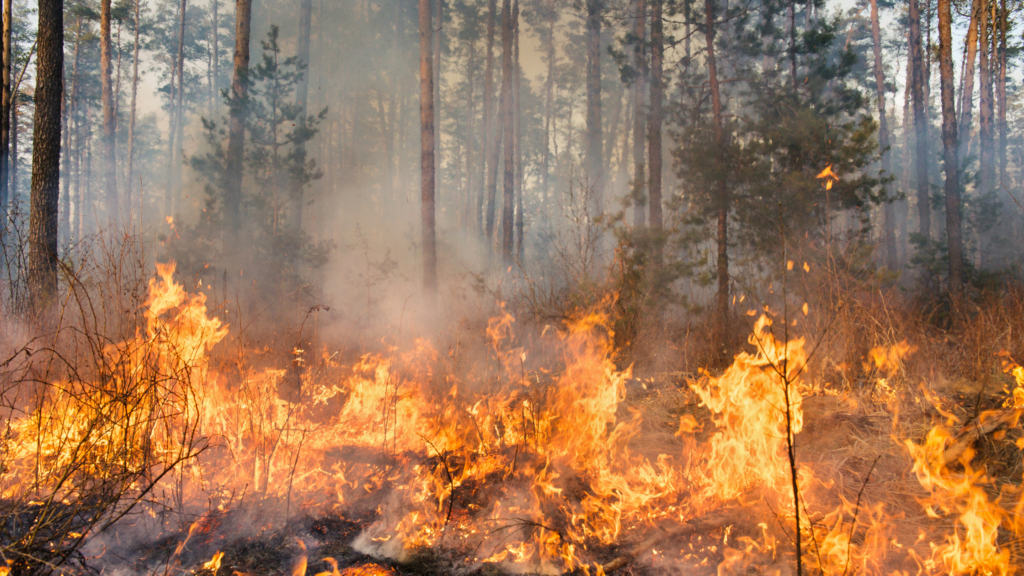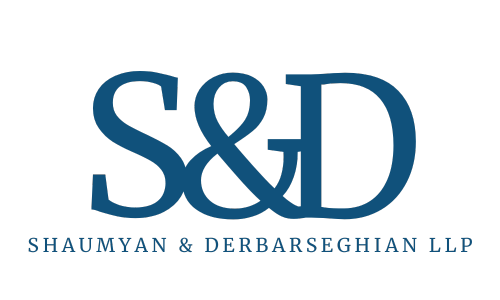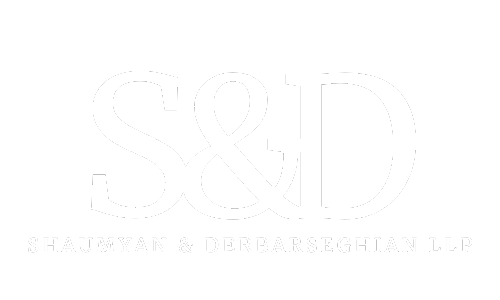
When the Smoke Clears, Who’s Left Responsible?
California’s wildfire season has become a year-round crisis, leaving devastating impacts on communities, businesses, and natural landscapes. As residents focus on containment and recovery efforts, there is often an overlooked but critical question: Who is responsible for the damages caused by these wildfires?
At Shaumyan & Derbarseghian, LLP, we care deeply about our communities and want to help those affected by the ongoing wildfires in Los Angeles and surrounding areas. Victims of wildfires may be entitled to compensation if negligence or wrongful conduct contributed to the disaster. Utility companies, government agencies, and even private property owners have faced lawsuits for wildfire-related damages. As wildfires continue to increase in frequency and intensity, California’s legal landscape is rapidly evolving to address these complex claims. Let’s explore how wildfire claims are reshaping personal injury and business litigation across the state.
Wildfires and Personal Injury Claims in California
While personal injury lawsuits are often associated with car accidents or slip-and-fall incidents, wildfire-related injuries and deaths have become an emerging area of law in California. Victims can pursue legal action to hold negligent parties accountable.
Who Can Be Held Liable for Wildfire Injuries?
Wildfires are rarely “acts of God” without human cause. More often, they result from negligence by utility companies, landowners, or government agencies. Some examples of potential liable parties include:
- Utility Companies: Companies like Pacific Gas & Electric (PG&E) have faced multi-billion-dollar lawsuits for their role in sparking catastrophic wildfires due to poorly maintained equipment. Faulty power lines have been linked to some of California’s deadliest fires.
- Government Agencies: If a government entity fails to properly manage public lands or enforce fire safety regulations, they may be held liable for wildfire-related damages.
- Private Property Owners: If a fire starts on private property due to negligence—such as failing to clear dry brush—the property owner could be responsible for damages.
Types of Personal Injury Claims Related to Wildfires
Victims of wildfires may file personal injury claims for:
- Burn Injuries
- Smoke Inhalation
- Emotional Distress and PTSD
- Wrongful Death
These claims often involve substantial damages, as victims may require long-term medical care or suffer from permanent disabilities caused by fire-related injuries.
How Wildfires Are Impacting Business Litigation in California
The impact of wildfires extends beyond personal injury. Many businesses suffer significant financial losses due to property damage, supply chain disruptions, and loss of revenue. In these cases, business owners may pursue legal action to recover their losses.
Common Business Litigation Claims Stemming from Wildfires
Businesses affected by wildfires may file lawsuits for:
- Property Damage: Businesses can sue for losses related to burned buildings, destroyed equipment, or damaged inventory.
- Business Interruption: If a wildfire forces a business to shut down temporarily or permanently, owners may seek compensation for lost revenue.
- Negligence Claims: Businesses can pursue litigation against utility companies or other entities if their negligence caused the fire.
- Insurance Disputes: Some businesses face challenges recovering wildfire-related damages from their insurance providers. In these cases, litigation may be necessary to get fair compensation.
Key California Laws That Affect Wildfire-Related Claims
Several California laws impact how wildfire-related personal injury and business litigation claims are handled:
- Inverse Condemnation Law: This law allows victims to sue utility companies if their equipment causes a fire, even if the company wasn’t negligent. The rationale is that utility companies, which profit from providing public services, should bear the cost of damages caused by their equipment.
- California Public Utilities Commission (CPUC) Regulations: Utility companies must follow strict CPUC regulations regarding the maintenance and safety of power lines. Failure to do so can result in liability.
- California Tort Law: California’s tort laws allow individuals and businesses to pursue negligence claims if another party’s actions (or inactions) caused harm.
How to File a Wildfire Claim in California
If you or your business has been affected by a wildfire, here’s how you can start the claims process:
- Document the Damage: Take photos and videos, and gather any evidence of damage to your property or injuries you’ve sustained.
- Identify Potential Liable Parties: Determine whether a utility company, government agency, or private property owner may be responsible.
- File a Claim with Your Insurance Company: Notify your insurance provider of any property damage or business interruption. Keep detailed records of all communication.
- Consult with a Lawyer: Contact a law firm like Shaumyan & Derbarseghian, LLP to discuss your legal options. Our experienced attorneys can help you navigate the complex process of filing a claim and seeking compensation.
Why It’s Important to Act Quickly
In California, the statute of limitations for filing personal injury or property damage claims is generally two years from the date of the incident. However, filing sooner is always better, as evidence can deteriorate over time, and it’s essential to build a strong case early on.
Additionally, wildfires often result in class action lawsuits, where multiple victims band together to sue the responsible party. If you’ve been affected, you may be eligible to join a class action to pursue compensation.
We Care About Our Community – Contact Shaumyan & Derbarseghian, LLP Today
As California continues to battle devastating wildfires, it’s more important than ever to stand together as a community. At Shaumyan & Derbarseghian, LLP, we are here to help those impacted by these tragedies. We understand the emotional and financial toll that wildfires take on individuals and businesses, and we are committed to fighting for your rights.
We work on a contingency fee basis, which means you don’t pay unless we win your case. If you or someone you know has been affected by a wildfire, contact us today to schedule a free consultation and learn how we can help you recover after a wildfire.
Helpful Resources:
Federal Emergency Management Agency (FEMA)
California Department of Forestry and Fire Protection (CAL FIRE)

